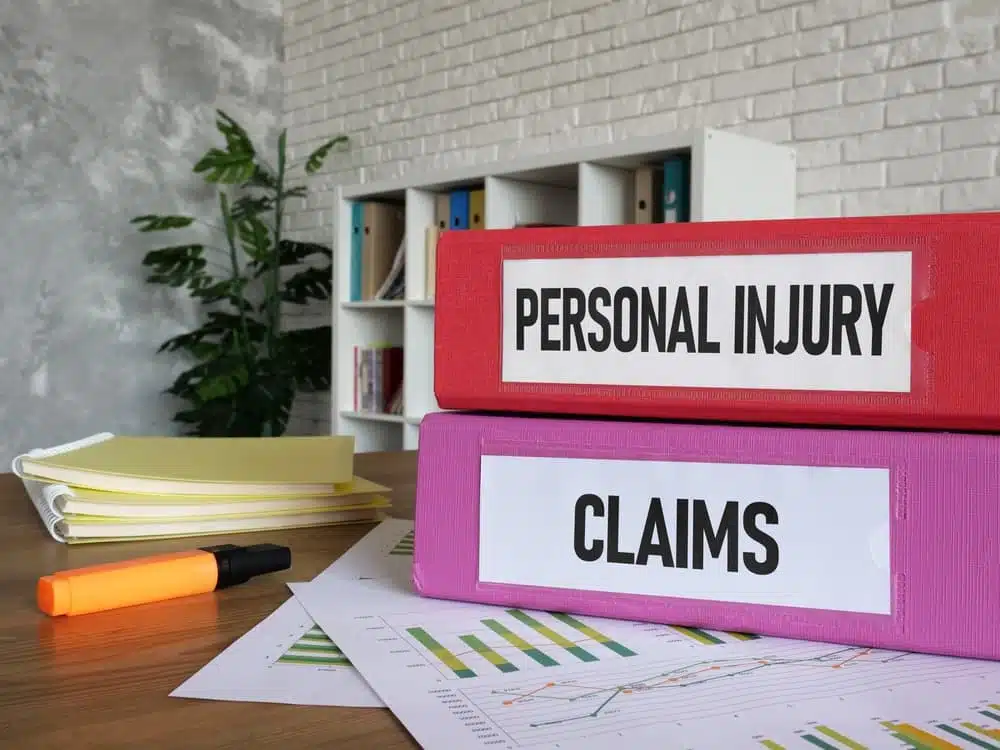
After a truck accident, insurance companies frequently approach injured parties with initial settlement offers. While these offers may seem tempting, especially when faced with mounting medical bills and lost wages, they need to be approached with caution and informed decision-making.
If you or someone you love was in a truck accident, this guide will explain how to handle the first offer from an insurance company. It will also highlight the importance of a truck accident lawyer and provide insights to help protect your rights and interests.
Understanding Insurance Companies in Accident Claims
The interests of insurance companies are not always aligned with those of injured parties. Some key points to understand about insurance companies in accident claims include:
- Quick settlements: Insurers often push for rapid settlements to close cases quickly and potentially save money.
- Lowball offers: Initial offers are often lower than what victims deserve, hoping they’ll accept out of financial pressure or lack of knowledge.
- Claim devaluation: Insurance adjusters may downplay the severity of injuries or damages to justify lower payouts.
- Recorded statements: They may request recorded statements, which can minimize or deny claims later.
- Delay tactics: Some insurers deliberately prolong the claims process, hoping to frustrate the injured party into settling for less.
Why Legal Assistance Matters in Insurance Negotiations
A skilled truck accident attorney can significantly impact the outcome of your insurance claim.
Legal professionals bring experience and resources that can level the playing field when dealing with insurance companies, such as:
- Understanding trucking laws: Attorneys who handle truck accidents understand the federal and state regulations governing the trucking industry.
- Accurate claim valuation: Lawyers can comprehensively assess your damages, including future medical needs and long-term impacts, ensuring a fair settlement amount.
- Negotiation skills: Experienced attorneys know how to effectively negotiate with insurance companies, countering their tactics and advocating for your best interests.
- Investigation capabilities: Law firms have the resources to conduct thorough investigations, gather evidence, and build a strong case on your behalf.
- Protection from exploitation: Attorneys can shield you from potentially harmful interactions with insurance adjusters, preventing you from accidentally saying something that could hurt your claim.
- Litigation preparation: If a fair settlement can’t be reached, your lawyer will be prepared to take your case to court. This tactic often motivates insurers to offer better settlements.
Common Myths About First Insurance Offers
Several misconceptions surround initial insurance offers after truck accidents.
Understanding these myths can help you approach the claims process with realistic expectations and a clearer perspective on your rights and options.
- Myth 1: The first offer is the best you’ll get. Reality: Initial offers are often intentionally low, serving as a starting point for negotiations.
- Myth 2: You must accept or reject the offer immediately. Reality: You have the right to consider the offer, consult with an attorney, and make an informed decision.
- Myth 3: Hiring an attorney will reduce your settlement amount. Reality: Research from the Insurance Research Council consistently shows that accident victims with legal representation receive settlements nearly 3.5 times higher than those without. This long-standing data, first published in 1999 and regularly updated, highlights the importance of legal help.
- Myth 4: Insurance will fully cover your claim. Reality: Insurance policies have coverage limits, which may not fully compensate you for your losses. Therefore, you may need to explore additional avenues for compensation.
- Myth 5: The insurance company is on your side. Reality: While they may seem friendly, insurance adjusters work for the company, not for you.
Breaking Down the Initial Settlement Proposal
When you receive your first settlement offer, you must understand its components.
Here’s a quick breakdown:
- Itemized damages: Look for a breakdown of compensatory damages, including medical expenses, lost wages, and property damage.
- Pain and suffering: Check if the offer includes compensation for non-economic damages like pain, suffering, and emotional distress.
- Future expenses: Assess whether the offer accounts for ongoing or future medical treatments and potential long-term impacts on your earning capacity.
- Liability admission: Accepting the offer may indicate agreeing with the insurance company’s assessment of fault.
- Release clauses: Carefully review any release of liability clauses, which may prevent you from seeking additional compensation later.
- Timeline and deadlines: Note any specified timeframes for accepting the offer or responding with a counteroffer.
- Supporting documentation: Examine what evidence or documentation the insurer used to calculate the offer amount.
Understanding these elements will help you and your attorney evaluate the adequacy of the offer and formulate an appropriate response.
How Truck Accident Attorneys Interpret Insurance Offers
Experienced truck accident attorneys consider various factors that accident victims might not fully understand:
- Comparative fault analysis: Lawyers assess how the insurer has apportioned fault and whether this aligns with the evidence.
- Policy limits: Attorneys consider the maximum payout available under the applicable insurance policies.
- Injury severity and prognosis: They evaluate whether the offer adequately accounts for the full extent and long-term implications of your injuries.
- Precedent cases: Truck accident lawyers compare the offer to settlements in similar cases to gauge its fairness.
- Strength of evidence: They assess how the available evidence supports your claim and whether it justifies a higher settlement.
- Litigation potential: Attorneys consider the likelihood of success if the case goes to trial and how this might influence settlement negotiations.
- Hidden costs: They identify any overlooked expenses or future needs that should be included in the settlement.
- Tax implications: Truck accident lawyers consider the potential tax consequences of different settlement structures.
This analysis allows truck accident attorneys to advise the injured party on whether to accept, reject, or counter the initial offer.
What Influences Your Compensation Amount?
Several factors can significantly impact the amount of compensation you may receive after a truck accident:
- Severity of injuries: More severe injuries typically warrant higher compensation due to increased medical costs and greater impact on quality of life.
- Long-term prognosis: Injuries resulting in permanent disability or requiring ongoing care often lead to larger settlements.
- Lost earning capacity: If your injuries affect your ability to work in the future, this can substantially increase your compensation.
- Liability determination: The clearer the truck driver’s or company’s fault, the stronger your negotiation position.
- Insurance policy limits: The maximum payout is often constrained by the limits of applicable insurance policies.
- Age and pre-existing conditions: These factors can influence how injuries are valued and their long-term impact.
- Emotional trauma: Significant psychological effects from the accident can increase non-economic damages.
- Strength of evidence: Well-documented injuries, expenses, and fault can support higher compensation claims.
- Jurisdiction: Laws and typical jury awards in your location can affect settlement amounts.
Understanding these factors can help you and your attorney build a strong case for fair compensation.
Assessing and Replying to the First Offer
When you receive a settlement offer, take your time. Don’t rush into a decision. Carefully review the offer with your attorney, assessing whether it adequately covers your current and future damages. Compare the offer to a detailed estimate of your total losses. Consider the long-term implications of accepting the offer.
If the offer is insufficient, work with your attorney to develop a well-supported counteroffer, providing detailed documentation to justify your claim. Maintain professional and courteous communication with the insurance company throughout the negotiation process.
Understand that negotiations can be time-consuming. Be prepared to explore litigation if necessary, and ensure all communications and agreements are documented in writing.
Remember, the initial offer is often just a starting point. By taking a systematic approach, you can increase your chances of achieving a fair settlement.
Future Impact of Accepting Early Settlements
Accepting an early settlement offer can have long-term consequences.
Injuries can be unpredictable, with symptoms worsening over time or developing into unforeseen complications. The full financial impact of lost wages and future earning potential may not be immediately apparent.
Additionally, the ongoing physical pain and emotional suffering resulting from the accident can be difficult to quantify early on. Once you accept a settlement and sign a release, you generally cannot seek additional compensation, even if your condition deteriorates.
Early settlements might also overlook potential compensation sources, such as punitive damages or the full extent of damages to your quality of life and the lives of your family members. So, carefully consider these factors with your truck accident lawyer before deciding.
Leveraging Evidence in Negotiation Processes
Evidence is the cornerstone of successful negotiations.
To build a strong case, your truck accident attorney will gather and organize information, such as:
- Police reports
- Witness statements
- Accident scene photos
- Medical records
- Professional opinions
This evidence package substantiates your claim, providing a solid foundation for demanding fair compensation. Your lawyer’s experience in collecting and presenting this evidence can achieve a favorable settlement.
The Critical Role of Proper Documentation
Proper documentation is vital in building a solid truck accident claim:
- Medical records: Keep detailed records of all medical treatments, prescriptions, and doctor’s notes.
- Expense receipts: Save receipts for all accident-related expenses, including medical bills, transportation costs, and home modifications.
- Income loss proof: Gather pay stubs, tax returns, and employer statements to demonstrate lost wages.
- Pain journal: Maintain a daily log of your pain levels and how injuries affect your life.
- Correspondence: Keep copies of all communications with insurance companies, medical providers, and other relevant parties.
- Photographic timeline: Document your injuries and recovery process through photos and videos.
- Witness information: Record contact details of any witnesses to the accident.
- Property damage estimates: Obtain and keep repair estimates or replacement costs for damaged property.
- Insurance policies: Maintain copies of all relevant insurance policies, including your own and the truck driver’s.
- Legal documents: Preserve all legal documents related to your case, including the complaint, responses, and any court orders.
Thorough documentation strengthens your claim and provides crucial support during negotiations or potential litigation.
Anticipating Potential Case Outcomes
While an out-of-court settlement is often the preferred outcome, your truck accident lawyer will prepare for alternative paths to compensation.
An appeal within the insurance company can be a viable option. This process involves a review of your case by the insurer, potentially leading to a reevaluation of the settlement amount.
Your attorney will prepare and submit the necessary paperwork and organize supporting evidence. However, in some cases, litigation may be necessary. If negotiations and appeals fail to resolve satisfactorily, your case may proceed to court.
A judge or jury will then determine the appropriate compensation. Throughout this process, your attorney will protect your rights and advocate for the best possible outcome.
Common Questions to Ask Your Truck Accident Lawyer
To ensure you understand your case and options, ask your lawyer plenty of questions, such as:
- What are your fees?
- How does my case compare to similar ones you’ve handled?
- What are my options for pursuing compensation?
- What are the details of the insurance offer?
- What does the insurance payout cover?
- Should I accept or reject the offer? What factors should I consider?
- What are the potential consequences of accepting the offer?
- Which parts of the offer should I negotiate?
- What evidence do I need to support my claim?
- What should I expect if negotiations fail or the offer is rejected?
- How can I get additional compensation if the payout isn’t enough?
Your lawyer will be able to clearly answer all your questions.
Contact a Skilled Truck Accident Attorney Today
Don’t let mounting bills or persuasive insurance adjusters pressure you into accepting an inadequate settlement. With the right legal team on your side, you can focus on your recovery while we handle your truck accident claim.
Contact the Rothenberg Law Firm LLP today for a free consultation. Our personal injury lawyers will review your truck accident case, explain your rights, and guide you through every step of the legal process. Let us help you during this challenging time and work towards the fair compensation you need.





